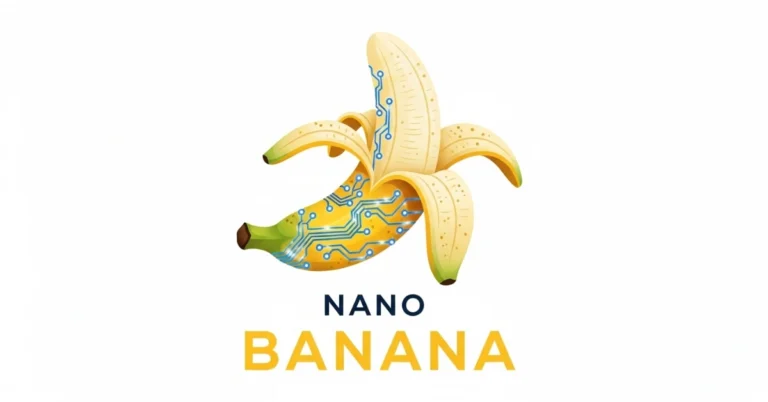At the Google I/O 2025 event, the tech giant introduced several exciting updates to its product ecosystem, highlighting advancements in AI, accessibility, and software capabilities. The event, held at Shoreline Amphitheatre in Mountain View, was a platform for Google to showcase the future of Android, Chrome, Google Search, YouTube, and its AI-powered chatbot, Gemini. Among the highlights were notable AI features, new product tools, and a glimpse into Google’s vision for the next phase of AI and accessibility improvements across their platforms.
Gemini Ultra: Enhanced Access to AI-Powered Tools
One of the most significant announcements was the launch of Gemini Ultra, a subscription service priced at $249.99 per month, offering the highest level of access to Google’s suite of AI-powered applications. Gemini Ultra brings together Google’s Veo 3 video generator, the Flow video editing app, and the Gemini 2.5 Pro Deep Think mode, a powerful AI capability designed to enhance the decision-making process. Subscribers will also gain higher limits for Google’s NotebookLM and access to the image remixing app Whisk. The plan also includes perks such as 30TB of storage across Google Drive, Google Photos, and Gmail, as well as the ability to use Gemini in Chrome and AI-powered tools through Project Mariner.
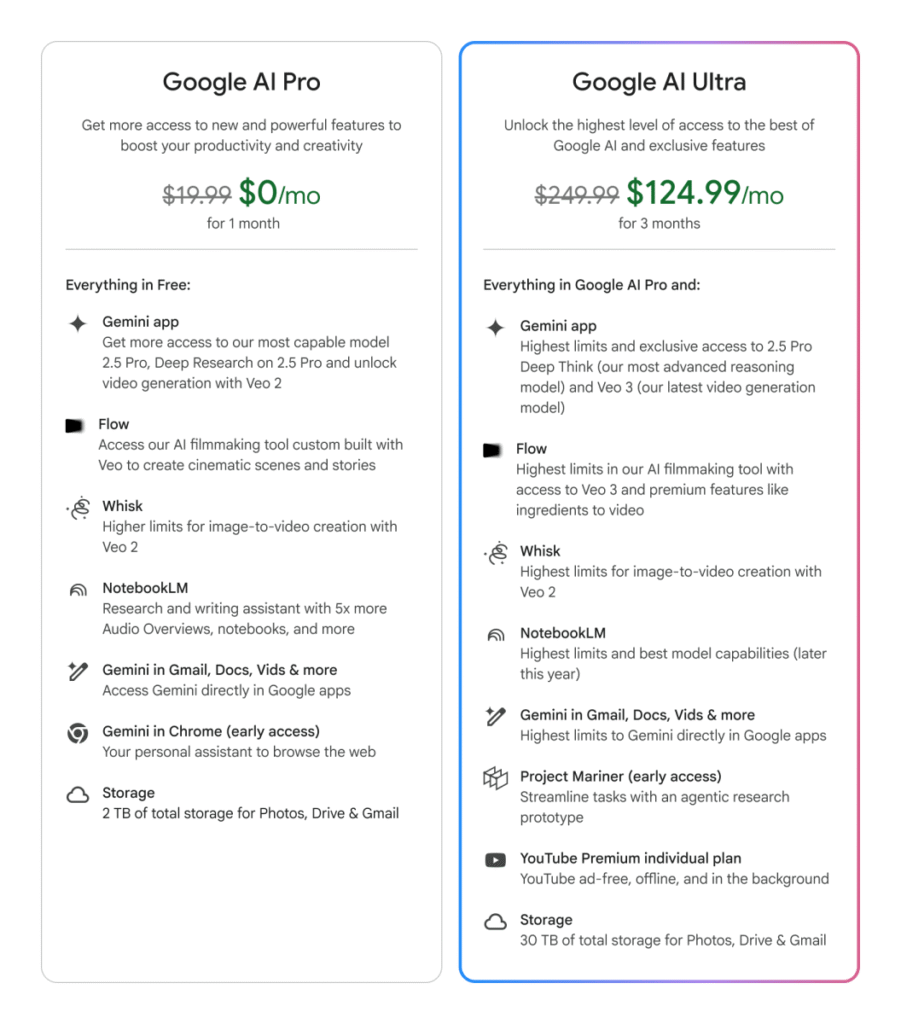
The Deep Think mode in Gemini 2.5 Pro is designed to enable deeper analysis by considering multiple responses before making a decision. This reasoning mode increases performance on various AI benchmarks and promises to improve the model’s accuracy and reliability. However, Gemini Ultra remains available exclusively to US subscribers at this stage.
AI-Powered Video Generation and Editing
Google also unveiled Veo 3, a powerful video-generating AI model designed to create dynamic, interactive videos. Building on its predecessor, Veo 3 can generate background sounds, sound effects, and even dialogue to accompany videos, enhancing the overall production quality. Subscribers to Gemini Ultra will have access to Veo 3 for creating video content directly through the Gemini chatbot app. This announcement reinforces Google’s commitment to expanding its video editing and creation tools, directly competing with other players in the AI-powered video space.
In addition, Imagen 4, Google’s AI image generation tool, has been upgraded to improve speed and detail. The model is now capable of generating photorealistic imagery with intricate textures, such as animal fur and fabric details. Google also promised that a faster version of Imagen 4 will be released soon, offering up to 10 times the speed of its previous iteration, opening new possibilities for faster image generation.

Gemini App Updates: Expanded Features for Enhanced User Experience
Google’s Gemini Live is evolving with new camera and screen-sharing features. Now, users can communicate with Gemini in near real-time while sharing video from their device’s camera or screen. This tool will soon integrate with other Google apps, allowing users to get directions from Google Maps, create events in Google Calendar, and generate to-do lists in Google Tasks. Google is also expanding Gemini’s capabilities in Deep Research, enabling users to upload their private PDFs and images for research assistance.
Another addition, Stitch, is an AI-powered tool designed to help users create web and mobile app front-end designs. Stitch allows users to generate HTML and CSS markup for UI elements simply by describing them or providing an image. While still in its early stages, Stitch is an exciting tool for web developers who need a quick and simple way to design user interfaces.
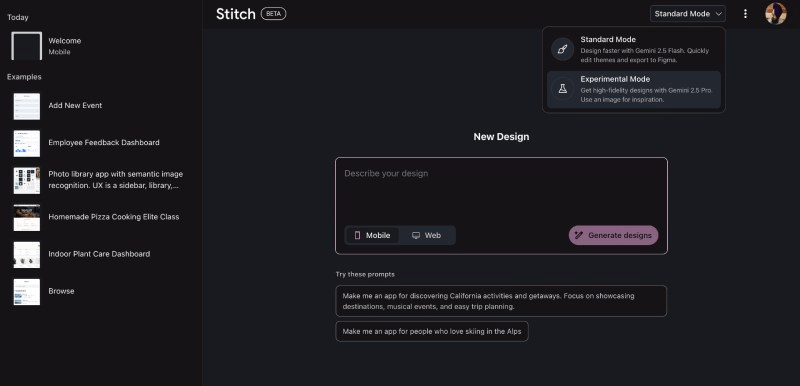
At Google I/O 2025, the company unveiled significant updates to its AI-powered coding assistant, Jules, marking its transition from an experimental tool to a publicly accessible beta. This move positions Google to compete more directly with established AI coding assistants like GitHub Copilot and OpenAI’s Codex.
Google’s Project Mariner and Astra: Pushing the Boundaries of AI Assistance
Project Mariner, Google’s experimental AI agent, allows users to interact with AI to complete a range of tasks across websites. It now supports the ability to purchase tickets, order groceries, and perform other tasks without visiting third-party websites. Project Astra, a low-latency multimodal AI experience, is pushing the boundaries of real-time AI capabilities and is set to enhance Google’s core products, such as Search and YouTube, while integrating with third-party apps.
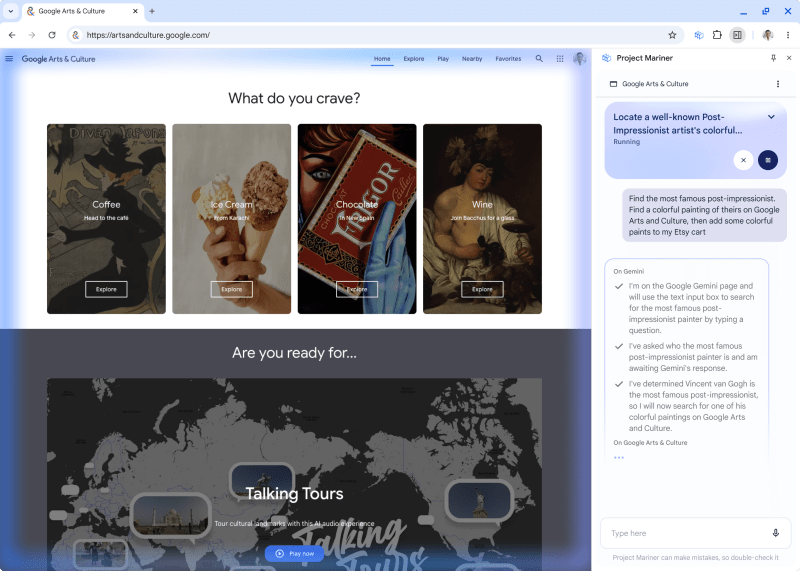
As for AI Mode in Google Search, the feature now allows users to ask more complex, multi-part questions with greater ease. This feature will be rolled out to users in the U.S. and will soon enable users to make inquiries based on real-time camera data via their smartphones, making searching even more intuitive.
Wear OS 6 and Android Studio: Enhancing Customisation and Development Tools
In wearable technology, Wear OS 6 introduces a new design language for apps, with dynamic theming that customises app colours to match watch faces. The update also includes improvements to the UI for smoother transitions and better developer customisation. Additionally, Android Studio has received new AI tools, such as “Journeys,” which enables an agentic AI to assist in the development process. The new “Agent Mode” can handle more intricate tasks, further enhancing the developer experience.
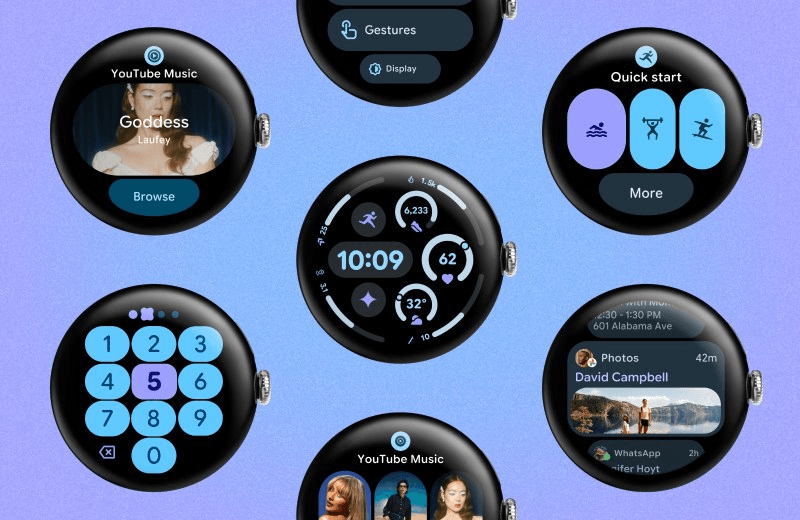
Google Play Store: Improved Tools for Developers
For developers, the Google Play Store now includes new tools to help manage subscriptions and improve user experience. The Play Store has been revamped to allow for more seamless product checkout and better ways to manage app releases. Developers can now monitor their app rollouts and even pause them if critical issues arise, ensuring better control over app performance.
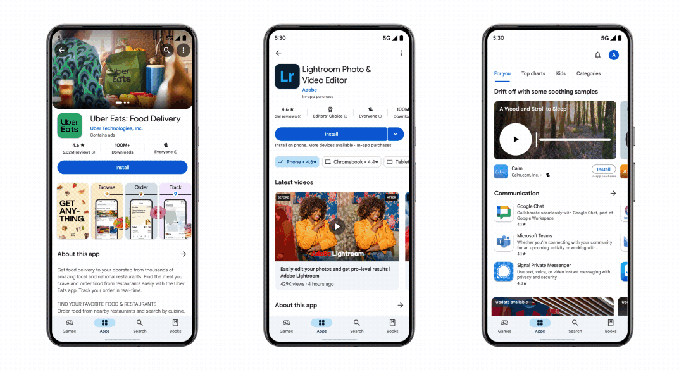
Google’s announcements at I/O 2025 highlight its continuous innovation in AI, accessibility, and development tools. From improving video generation and editing capabilities to enhancing user interactions with AI, Google is positioning itself at the forefront of AI technology across different platforms. As the company continues to develop new features, the integration of AI into both everyday tools and professional environments promises to drive new possibilities and enhance the user experience.
📲 Get the latest Tech & Startup News on our WhatsApp Channel
👉 Join Now

